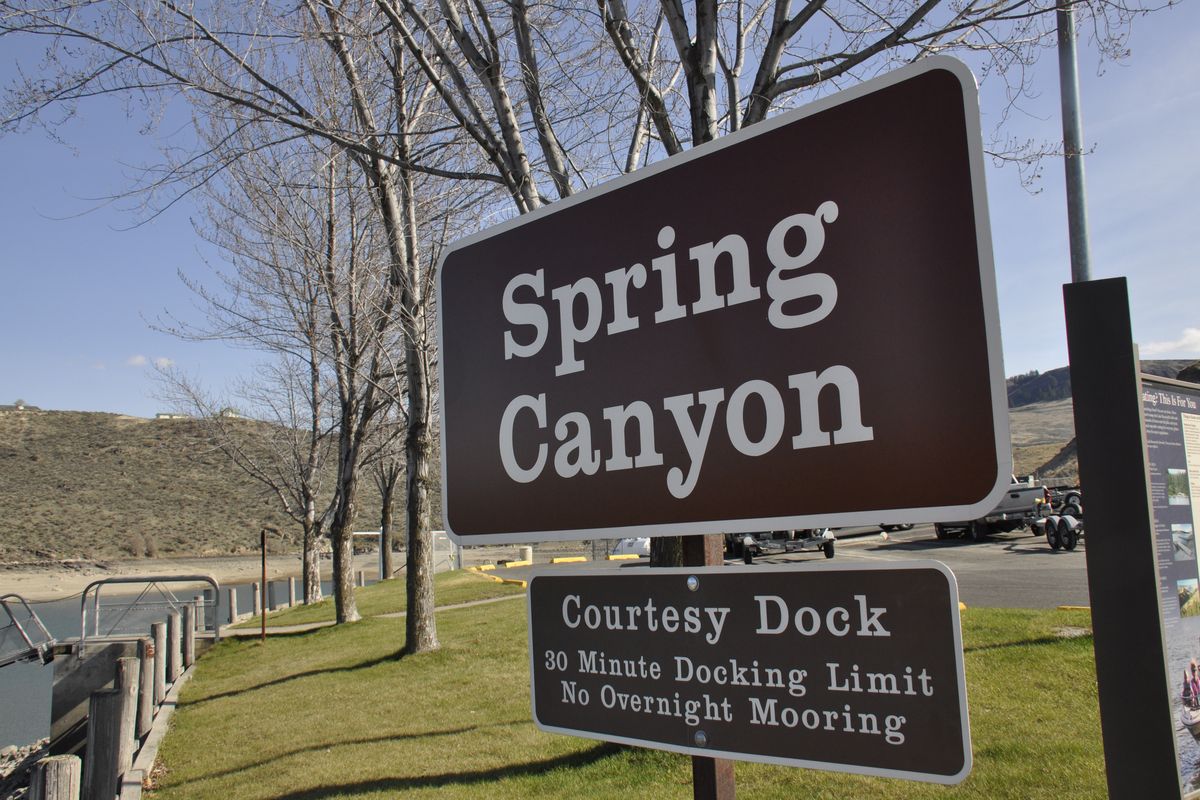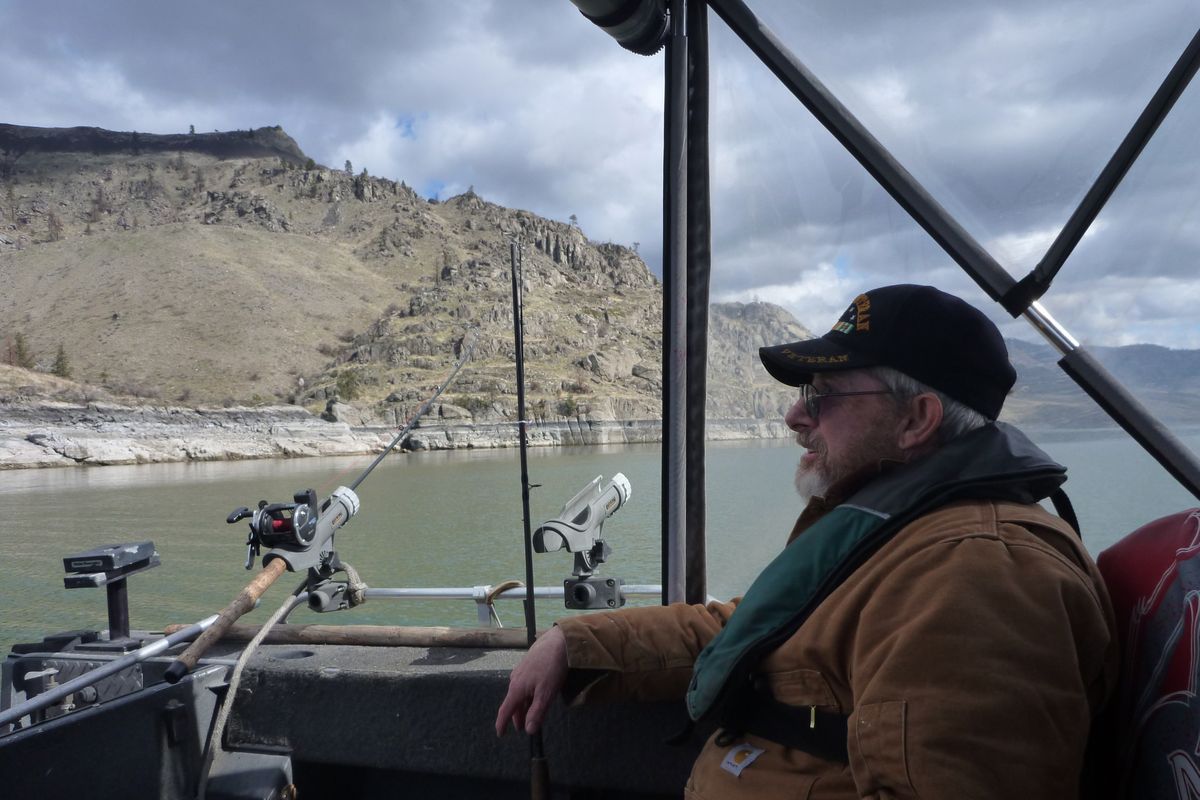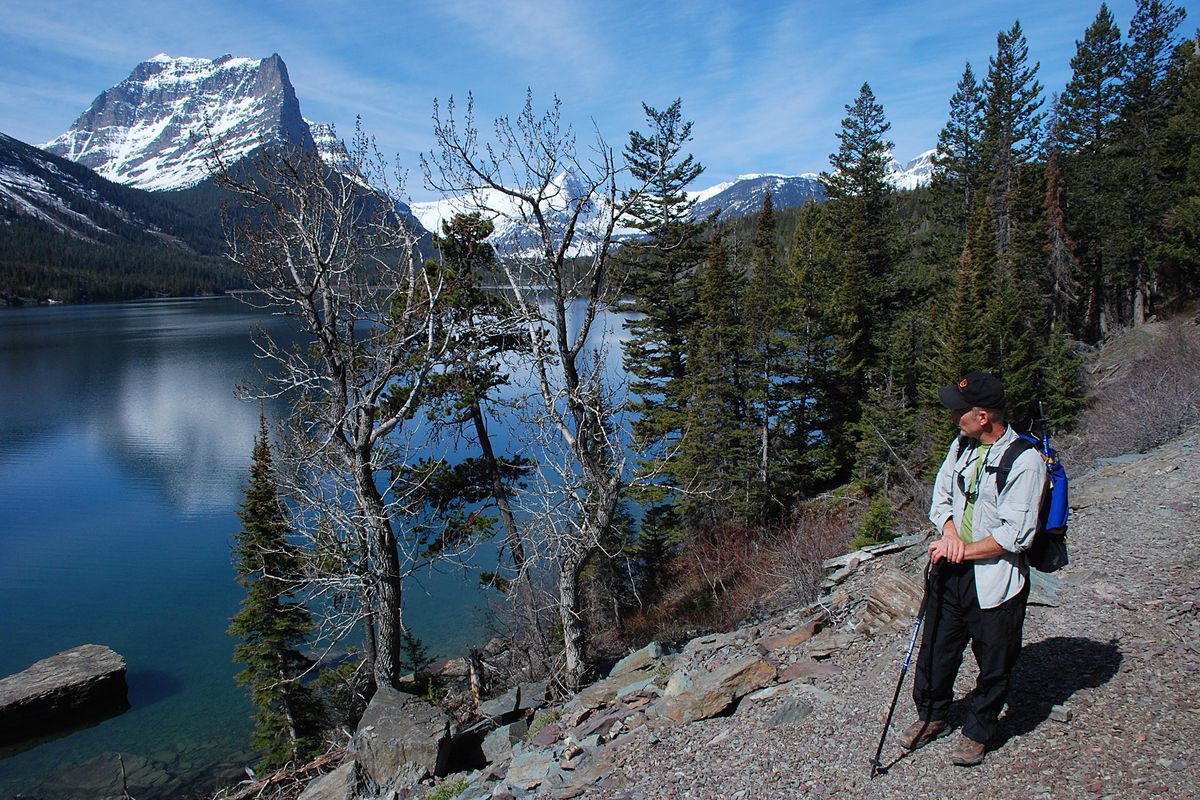Agencies look at possible fee increases that would impact the cost of outdoor living
Visitors to Glacier National Park and other National Park Service sites are likely to pay more for entry and camping in 2015. (Rich Landers)Buy a print of this photo
Fee increases are likely to take a bigger bite out of personal outdoor recreation budgets in 2015.
Federal agencies and some state agencies are proposing increased fees for camping, boat launch and, in some cases, hunting and fishing.
National Park Service entrance fees are proposed to increase, along with camping and boating fees.
National Forests already have been increasing fees, including the Nez Perce-Clearwater National Forest in Idaho, where fee increases went into effect Dec. 1 at 24 campgrounds, one visitor center, and four lookout/cabin rentals.
U.S. Bureau of Land Management areas also are raising camping and boating fees in some locations where they are charged.
Fishing and hunting license fees are likely to increase in Oregon – and Washington officials are floating the idea, too.
For the first time in eight or nine years, the National Park Service sites that charge entrance and amenity fees can increase their rates. The parks were directed to reveal the proposals to the public earlier this year.
Decisions on approvals will be made early in 2015.
Entry fees are charged at 133 of the 401 National Park Service sites across the United States.
Glacier National Park is proposing a $5 increase in its seven-day entrance fees, but a 71 percent hike for its annual season pass.
The annual season pass, which allows unlimited access to Glacier for a full year, would go from $35 to $60. A seven-day entrance fee would rise from $25 to $30 during the summer, and from $15 to $20 in the winter.
The proposals do not affect the National Parks and Federal Recreational Lands Pass Program, which offers an annual $80 “America the Beautiful” pass good for all national parks and national wildlife refuge systems. Also, $10 senior passes – a one-time fee that’s good for the rest of the patron’s life after reaching age 62 – and free active military passes do not change.
Lake Roosevelt National Recreation Area, which is managed by the National Park Service, does not charge entry fees. However, officials have proposed increasing other fees, such as raising the cost of an individual campsite from $10 a night to $18.
The Lake Roosevelt boat launch fee would increase from $6 to $8 a week for passes available at the ramps. The boat launch annual permit would change from the varying fee structure of $30 from January through April, $40 from May through September and $20 from October through December, to a single yearly fee of $45.
Anglers and hunters may see some license price changes, although they’re not all bad.
The Oregon Legislature will consider hunting and fishing license fee increases the state Fish and Wildlife Commission have approved on a graduated basis.
Washington’s freshwater, saltwater, shellfish and razor clam licenses would increase by $2 a year although some hunting license prices would be reduced under a proposal to be unveiled by the Department of Fish and Wildlife in January.
Washington’s annual freshwater fishing license currently costs $29.50.
Guy Norman, the agency’s regional director in Southwest Washington, said the department’s state general fund revenue has been reduced by about $50 million since 2008.
Federal dollars are dwindling and the costs of managing fish and wildlife are creeping upward, he added.
Gov. Jay Inslee has directed most state agencies to identify how they would absorb another cut of up to 15 percent from general taxpayer dollars in the 2015-17 budget cycle.
The Fish and Wildlife Department’s proposal package is projected to generate about $2.2 million in additional revenue from recreational fees and $800,000 from commercial fees.
Potential increases and decreases in fees include:
•Annual combination fishing license would increase by $1.
•Annual freshwater, saltwater, shellfish and razor clams licenses, plus the three-day razor clam license, would increase by $2.
•Fees for all the licenses mentioned above would increase $5 annually for nonresidents.
•A new surcharge would be applied to commercial businesses that fish, harvest, sell, buy or process salmon and steelhead. The salmon excise tax would be increased. Individuals assisting in the commercial harvest of fish and shellfish would be required to buy a new crew member license.
•The state Fish and Wildlife Commission would be given authority to reduce the price of several hunting licenses currently set at fixed amounts. State law would only specify maximum fees.
The agency sells about 550,000 hunting licenses annually, generating about $17 million.
Nationally, the number of hunters is declining slowly. In Washington, fewer hunters pursue ducks, geese and upland birds than in decades past.
“We think by selectively reducing certain fees we can increase the number of hunters, and thereby increase revenue,” Norman said.
For example:
• New master hunter and damage-hunt licenses costing $20 are proposed. The new licenses would encourage participation in damage-related hunts without requiring hunters to forego their general hunting season opportunities for deer and elk.
•A new, yet-to-be- announced fee is proposed to recover the costs of operating the department’s private lands hunting reservation program. The department has a number of private properties in Eastern Washington that can be reserved online for an exclusive hunt during a set period.
Norman said general state tax dollars are down to just 16 percent of the agency’s budget. User fees are 39 percent, federal funding is 29 percent and local funds, such as mitigation money from utility companies, are 16 percent.
Action by the state Legislature will be required to increase fees, create new licenses and give the commission authority to reduce hunting license prices.
The Legislature convenes beginning Jan. 12.
Details of the fee proposals could change in the next few weeks as a result of additional discussions with constituents, he said.


